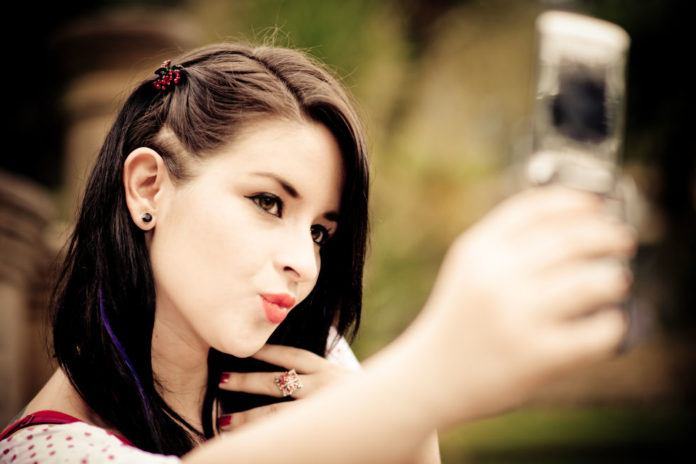In recent years, taking selfies have become a ubiquitous trend. As it gains more popularity, it becomes a topic for scientific research to catch up with the phenomenon. Similarly, one more research is conducted by Yonsei University in South Korea. The research explores the role of selfies in our social world, by examining the effect of taking and sharing selfies on self-esteem and social sensitivity.
The research suggests that the act of clicking selfies could actually make people self-conscious and more aware of how others view them. It causes us to only focus on ourself. If you are walking through the street, and someone staring at you, you are likely to become more aware. You become more concerned with how that person is judging you. This awareness of how others might be judging us or reacting to us is called social sensitivity. Consistent with this idea, studies have shown that posting information about oneself on social media is associated with more social sensitivity.
This increased self-awareness sometimes tends to lower self-esteem. suggesting that taking selfies should make us feel worse about ourselves. This suggests that the act of taking a selfie might reduce self-esteem, but the act of sharing it might increase self-esteem.
Scientists wanted to check both the act of taking a selfie and the act of sharing that selfie with others affected social sensitivity and self-esteem. They conducted a survey where they involved 78 students. Half students among them were randomly assigned to take a selfie. At the other hand, the other half were assigned to take a photograph of a neutral object—a cup. Additionally, half of the participants were asked to share their photo on their favorite social media platform, while the other half were merely asked to save their photo.
Scientists measured the participants’ levels of social sensitivity and self-esteem by using covert measures of social sensitivity and self-esteem. They examine the physical size of participants’ signatures. They noticed people with lower self-esteem tend to write smaller signatures.
Next, scientists asked participants to sign their own names with a pen both before and after the experimental manipulation. The change in size indicates a change in self-esteem caused by the photo-taking and/or sharing.
Scientists also measured social sensitivity covertly, using a probe detection task. In this task, participants went through several computerized trails. Scientists showed them an image of a face briefly flashed on a computer screen. Then they asked participants to press the correct arrow key on the keyboard, as quickly as possible, to indicate the direction of the arrow.
Sometimes the arrow was at the exact location of the screen as one of the face’s eyes. Other times, the arrow appeared in the location of the nose or the mouth. This showed, both taking and sharing selfies affected self-esteem and social sensitivity. Scientists also found that participants in the selfie condition who merely saved their photo showed a larger reduction in self-esteem from the start of the experiment, as compared to those who shared their selfies on social media.
This suggests that the act of taking selfie can make us feel worse about ourselves. This is because of increased focus on the self. Taking selfies is often viewed as the epitome of self-centeredness, and selfie-taking is, in fact, modestly correlated with narcissism. But these results suggest that sharing selfies may actually make us pay more attention to how other people are reacting.
